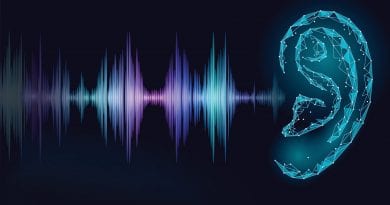A Small Step Toward Better Behavioral-health Supports
Opinion
By NAMI MASSACHUSETTS
Since 988 went live on July 16, here’s what you need to know.
988 is a new, easy-to-remember number for reaching the National Suicide Prevention Lifeline. In Massachusetts, we have five National Suicide Prevention Lifeline centers that are staffed by non-clinicians. Presently, not all these centers are 24/7, and some of them do not refer people to additional services. Now, you can call or text 988 any hour of any day and connect with a trained call taker who can listen, provide support, and refer to additional resources and services as needed.
While we are encouraged that the federal government and Massachusetts have begun to prioritize behavioral-health system reform, we know that 988 is a small step in restructuring the system. At NAMI Massachusetts, we envision a behavioral-health system that includes:
• immediate access to mental-health supports for individuals and families that are founded in agency dignity and choice;
• services that are culturally and linguistically responsive and include options for both clinical support and peer and family support from those with lived experience;
• a full range of immediate crisis support services that are welcoming, non-coercive, and meet the needs and preferences of the individuals seeking care over the phone, in-person, virtually, or at a 24/7 crisis center; and
• a comprehensive continuum of services that links people to ongoing care and support and ensures equitable access to quality care for all.
Additionally, we promote a behavioral-health system that addresses the high levels of ED boarding, arrest of individuals with mental health conditions, climbing suicide rates, and tragic outcomes in some police encounters. For a behavioral-health system to respond effectively to an ongoing crisis, it needs three parts: 24/7 crisis call centers, mobile crisis teams, and crisis stabilization. The system should also provide a continuum of care that prioritizes the prevention of a crisis, care during a crisis, and follow-up after a crisis.
Promisingly, Massachusetts will roll out a second 24/7 clinician-run behavioral-health helpline in January 2023. This helpline will be supported by community behavioral-health centers with mobile crisis services, crisis-stabilization supports, and an array of urgent and routine behavioral healthcare. But there are still a lot of unknowns with the behavioral-health helpline and its intersection with 988.
First and foremost, while we appreciate these strides toward a renewed behavioral-health system, it is important to note that 988 is not always going to mitigate police response. Without mobile crisis teams and crisis stabilization, 988 will still rely on police intervention if they do not feel they can de-escalate a situation over the phone. Secondly, we need accountability measures, feedback opportunities, and data-driven results on 988’s functioning in order to address any concerns or problems. Without these measures in place, we cannot effectively judge or rely on the system for people living with mental-health conditions in crisis.
While we wait in hopeful anticipation of 988 and the behavioral health-helpline, NAMI Massachusetts continues to provide free information, ideas, resources, and support to people across the state navigating the complex mental-health system and related systems of care. Our Compass Helpline is staffed by people with first-hand experience navigating the mental-health system for themselves or a family member.
This is an important time for Massachusetts residents living with a mental-health condition and their families. We need to ensure that an accountable and transparent system is designed and implemented by centering the voices of the most impacted. It is also important that we are realistic about where we are in behavioral-health reform. We may not be where we want to be today, or even next week, but we are optimistic that, with input from diverse providers, recovery coaches, peer-support specialists, advocates, and people living with a mental-health condition and their families, Massachusetts can create a well-designed behavioral-health system.
Learn more about the Lifeline at 988lifeline.org. You can find additional resources and suggestions for navigating a crisis for you or someone you support at namimass.org/in-a-crisis.
The National Alliance on Mental Illness of Massachusetts (NAMI Massachusetts) is a nonprofit grassroots organization. Founded in 1982, it aims to be the state’s voice on mental illness.
The National Alliance on Mental Illness of Massachusetts (NAMI Massachusetts) is a nonprofit grassroots organization. Founded in 1982, it aims to be the state’s voice on mental illness.


